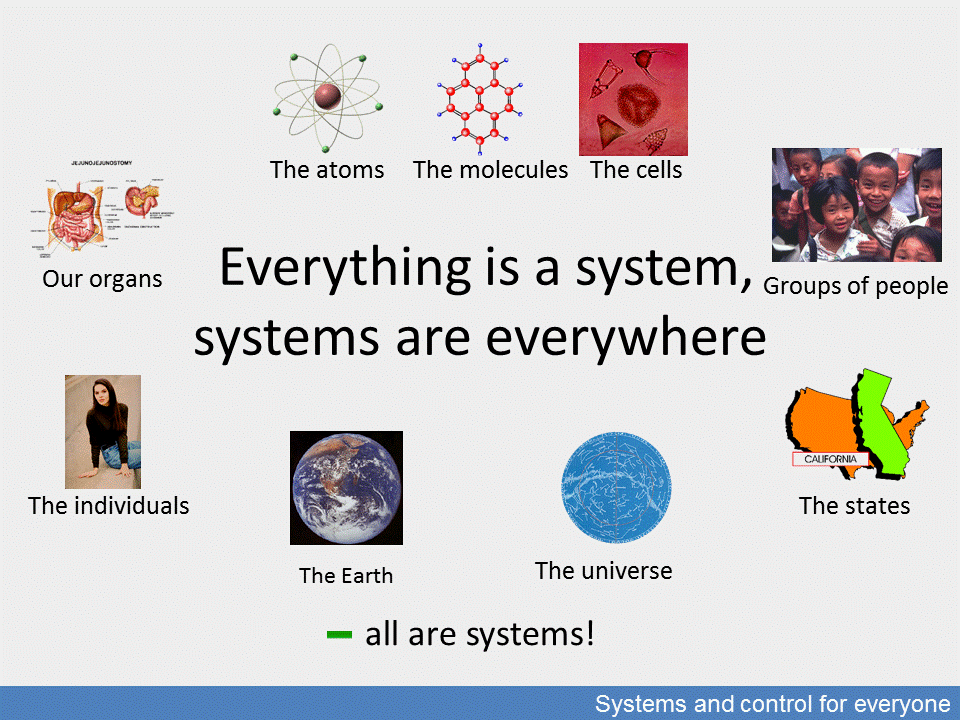

Everything is a system, systems are everywhere
Everything around us is a system—except for the fundamental particles considered to be the ultimate constituents in physics, since theoretically and practically everything can be reduced to its constituents. From the nucleus to the perceivable universe, from the biological elements of a living organism to the comprehensive whole of nature, this concept can be taken to cover everything.
The concept is a human creation, a linguistic idea which tries to capture the essence of these relations by highlighting the connecting points.
The concept is a very general one, so—similarly to other generalities—it runs the risk of becoming meaningless. Our ambition, however, is to avoid this outcome and show that such systems of relations have a certain degree of uniformity and similarity that can prove useful. This is in the very focus of system science which relies on the results of observations made during millions of years and the findings of current research to build knowledge that connects big wholes and small parts and can be used commonly. This is what makes the concept meaningful.